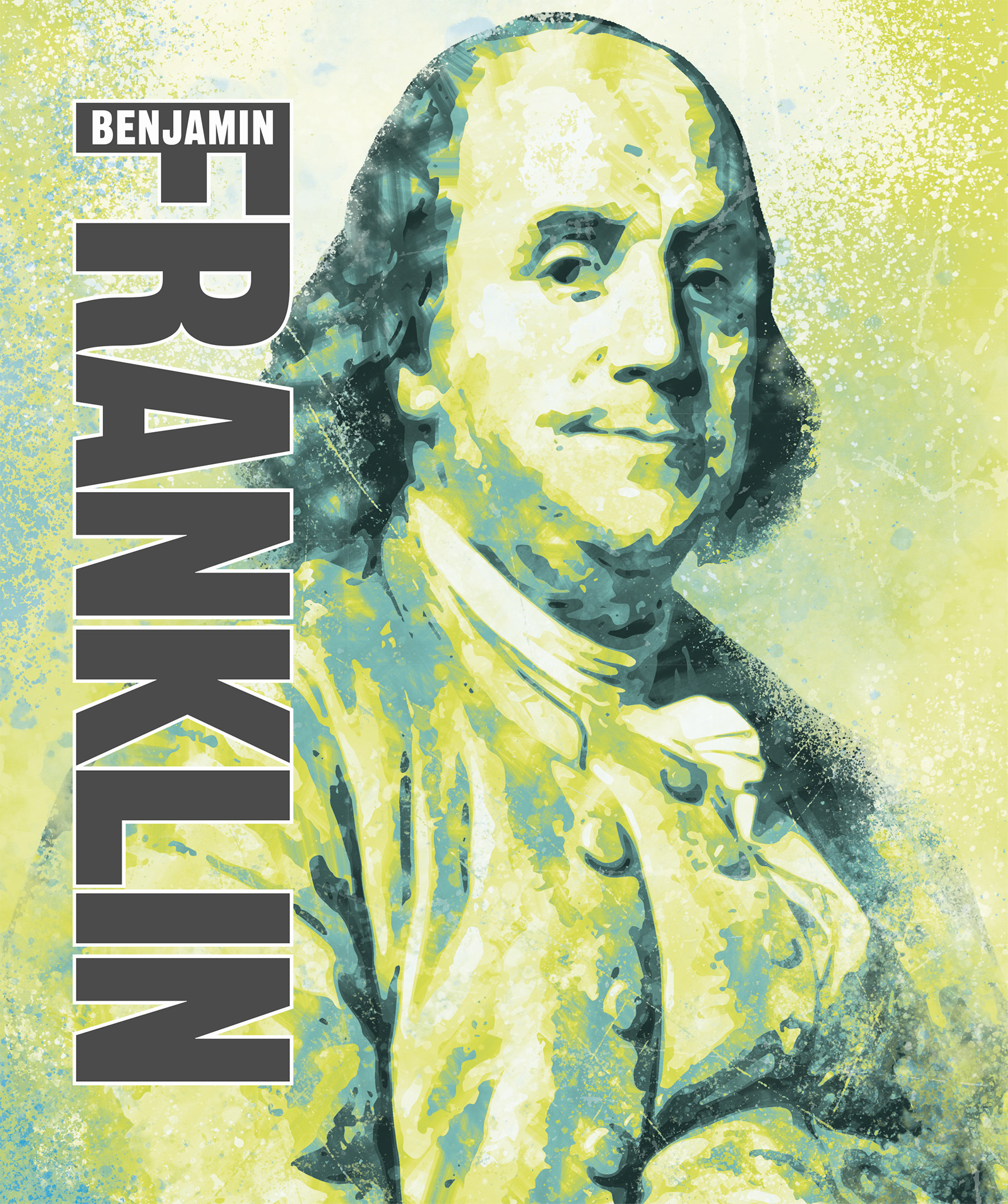
BENJAMIN FRANKLIN
1706–1790
Rising from humble origins, Benjamin Franklin became one of the most famous figures in colonial North America. Often remembered for his political and scientific activities, he was also an incredibly successful entrepreneur, whose print and publishing businesses made him one of the wealthiest individuals of his day.
The 15th of 17 children of a Boston candlemaker, Benjamin Franklin started working for his father at age 10. Franklin had received only two years of formal schooling and spent much of his meager salary on books to educate himself. His career in publishing began at the age of 12, when he was apprenticed to his brother, who was a printer. In 1723, Franklin moved to Philadelphia, continuing to work in print, then traveled to London, living there from 1724 to 1726. Finally resettled in Philadelphia, he briefly worked as a merchant’s clerk before returning to printing.
Franklin had raised enough capital by 1728 to open his own printing business with his friend Hugh Meredith, whom he bought out two years later. Franklin was never short of work. He secured the contract to print paper money for the Pennsylvania Colony, as well as for Delaware, New Jersey, and Maryland. In 1729, he purchased a newspaper, the Pennsylvania Gazette, which he often contributed to. It was hugely popular and was produced until 1800.
Franchise system
Ever the innovator, Franklin established the first franchise system in American history. He made partnerships across the colonies from 1731. He would rent a shop and purchase printing equipment for his franchisee; in return, he would receive one-third of their profits for six years, after which they could buy the equipment from him. Franklin’s most profitable enterprise was Poor Richard’s Almanack, which first appeared in 1732. It contained meteorological and astronomical information, a calendar, and even witty advice penned by Franklin himself.
By 1748, Franklin was wealthy enough to retire from active involvement in his business, and he took on his foreman David Hall, who oversaw day-to-day operations, as his partner. Franklin had become increasingly involved in politics and held many public positions. He also conducted scientific research, winning renown for his experiments with electricity. Among his many inventions were the lightning rod, a flexible catheter, swimming fins, bifocals, a musical instrument (the “glass armonica”), and a new type of heating stove.
In 1757, Franklin returned to London, where he remained for much of the next 18 years. During this time, he became an admired and respected figure in London society; however, growing discord between the British government and the American colonies forced him to return home in 1775. Originally a British royalist, he became a proponent of American independence, helping establish the US and draft the guiding principles of the new country. Franklin was the only Founding Father to have signed all three documents releasing the US from British rule: the Declaration of Independence, the US Constitution, and the Treaty of Paris. Franklin also served as a diplomat in Europe, going to France in 1776 and forging an alliance that was instrumental to American success in the Revolutionary War. On returning home in 1785, he served as President of Pennsylvania.
“Gain may be temporary and uncertain, but expense is constant and certain.”
Benjamin Franklin, 1757

Benjamin Franklin is shown as a young man operating an 18th-century printing press in this artist’s visualization of his workshop in Philadelphia.
Financial legacy

At his death in 1790, Franklin left $4,400 (at the time) to the cities of Boston and Philadelphia, on the proviso that they place the money in a trust to provide small loans to help local entrepreneurs. The cities were permitted to take full control over the bequest only after 200 years. By 1990, the trust funds had grown very favorably. Philadelphia put this money toward scholarships and the Franklin Institute (a science museum), while Boston funded the Benjamin Franklin Institute of Technology.
“Waste neither time nor money, but make the best use of both.”
Benjamin Franklin, 1758
CARL BERTELSMANN
German publisher Carl Bertelsmann successfully founded one of the world’s largest media conglomerates.
In 1835, Bertelsmann (1791–1850) established his eponymous publishing company, focusing on religious works and hymn books. Taken over on his death by his son, and later by his grandson-in-law, the company expanded into novels, histories, and school books and bought rival publishing houses. By the mid-20th century, it was a global mass media conglomerate, incorporating music, radio and television broadcasting, and print.
MILESTONES
STARTS BUSINESS
Aged 22, sets up a print business in 1728 with new equipment imported specially from England.
PUBLISHES ALMANACK
Starts printing Poor Richard’s Almanack in 1732. It sells up to 10,000 copies a year for 26 years.
LEAVES PRINT
Retires from his printing business in 1748 to concentrate on politics and science.
GIVES BACK
Helps found the Academy for Education of Youth and Philadelphia City Hospital in 1751.
